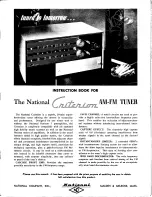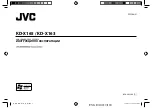
2 Introduction
This Setup Guide provides you with step-by-step guidance on how to set up your Meinberg product for the
first time.
The individual chapters address topics such as the general features of the DCF600USB, the proper instal-
lation procedure, and the main technical specifications. This Setup Guide also describes the main parameters
needed to quickly set up and configure your product using the Meinberg Monitoring Utility (MbgMon).
2.1 How the DCF600USB Works
This compact unit is integrated into a plastic housing which also includes receiver and power supply compo-
nents. Four LEDs are used to provide status information such as the successful demodulation of time markers
and the synchronization status.
The DCF600USB radio-controlled clock is designed to be operated on a USB interface and can therefore
be used to synchronize the clock of the PC to which it is connected. This is especially useful on PCs that have
no RS-232 interface and no available PCI slot. The USB port is used to supply the module with the necessary
power, eliminating the need for an external power supply.
The signal from the DCF77 transmitter is received by the integrated ferrite antenna and passed to a narrowband
direct receiver, which in turn transfers the demodulated time markers to the DCF600USB’s microcontroller. The
microcontroller decodes the time markers provided by the receiver circuit and uses this data to generate accurate
date and time information. If the integrity check of this time information is successful, the information is also
subjected to a plausibility check using two consecutive time strings. If this plausibility check is also successful,
the internal software clock is adjusted to the decoded time.
2
Date: November 29, 2021
DCF600USB






































